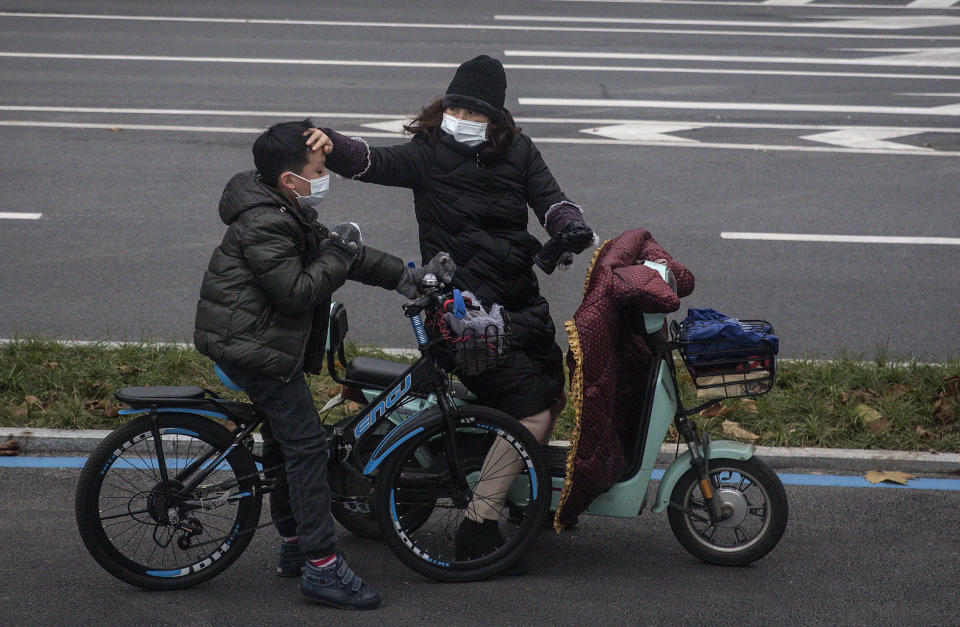How worried should we be about the coronavirus?
What’s happening
The World Health Organization has declared a global emergency over the novel coronavirus.
At the end of last year, a string of pneumonia cases in Wuhan, China were determined to be a new type of coronavirus. Coronaviruses can cause illnesses “ranging from the common cold to more severe diseases.” It can be transmitted from people to people, between animals, or from animals to people.
The kind detected on December 31, 2019 is called Novel Coronavirus. So far, over 200 deaths have been linked to the disease. But it isn’t limited to China. Cases quickly spread around the world, including Canada, the United States, South Korea, the United Kingdom, France and Australia.
Public health officials have confirmed that there are four cases of the coronavirus in the provinces of Ontario and British Columbia. Each of the four patients are now recovering in self-isolation at home.
The exact cause of the outbreak is still unknown, according to the latest report released by the World Health Organization (WHO) on January 23.
Why there’s debate
The Public Health Agency of Canada said there is a low risk for Canadians and Canadian travellers, however, some experts said the country should still be on alert. Symptoms can take one to two weeks before they’re detected.
“You can be infected and not know you’re infected,” Wilfrid Laurier University professor and virologist Stephanie DeWitte-Orr told Global News.
Airports in Toronto, Montreal and Vancouver are getting prepared by adding signs aimed at those coming from the area of the outbreak. They are also expected to add health screening questions to kiosks. But another expert said this might be “a bit of an overreaction.”
“We’ve all had a coronavirus in our past — probably about 10 per cent of common colds are caused by coronaviruses,” clinical associate professor at the University of British Columbia’s Department of Emergency Medicine Dr. Michael Curry told CTV News. “This particular coronavirus does seem nastier than most, but preliminary data shows it’s not quite as bad MERS or the SARS coronavirus.”
What’s next

The Government of Canada recommend that people exercise a “high degree of caution” travelling in China, and should avoid all non-essential travel to he province of Hubei. On Jan. 29, Air Canada also suspended all flights to China until Feb. 29.
In addition, officials are urging the public to avoid farms, contact with animals or with sick people.
The situation continues to be monitored and reassessed on an ongoing basis. The WHO is offering advice to the public on safe food practices, respiratory hygiene and more online.
____________________________________________________
FULL COVERAGE ON CORONAVIRUS
What Canadian travellers need to know about the virus
People are wearing plastic jugs to prevent the spread
Fact or fiction? Debunking the false myths about the virus
____________________________________________________
Perspectives
We can handle it.
“Now we have a fully engaged public health organization working closely with clinical colleagues and providing them with information — working seamlessly together. We have the tools and we have the skills.” — Dr. Ross Upshur, University of Toronto’s Dalla Lana School of Public Health, Toronto Sun
We are better prepared after SARS.
“The lessons of SARS have better prepared us to respond to current and future threats to public health. But that preparation should not lead us to forget the most important lesson of all – complacency is not a luxury any community can afford.” - Tony Clement, Ontario minister of health during the SARS outbreak in 2003, The Globe and Mail
We should be skeptical of China’s quarantine efforts.
“As a physician, I cannot yet give a prognosis of how all this will work out. But as a historian of quarantines and epidemics — one who has read, seen or written similar sad stories too many times — I am not terribly optimistic it will turn out well.” - Howard Markel, director of the Center for the History of Medicine at the University of Michigan, The Washington Post
Travelling can take the disease far.
"In the last 15 years, the volume of people travelling through commercial flights has doubled. We've become vectors that are moving these diseases very, very rapidly around the world.” — Dr. Kamran Khan, infectious disease physician and scientist at St. Michael's Hospital, CBC News
You might not feel the symptoms.
“So you could go to Wuhan, get infected and come back, which is what happened to the individual in Washington and then be home for a number of days, interacting with people before you even know that you’re sick.” — Stephanie DeWitte-Orr, Wilfrid Laurier University professor and virologist, Global News


